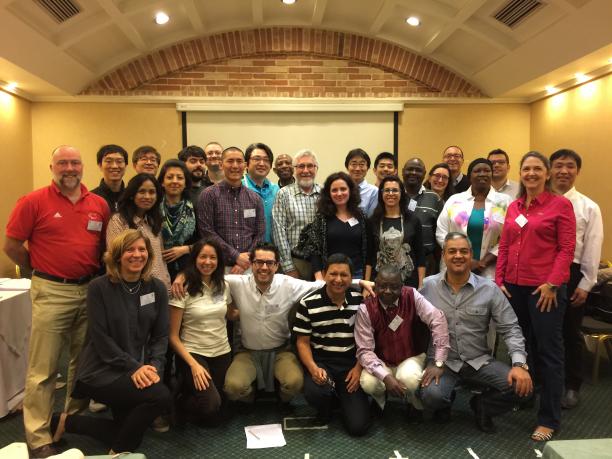Twenty one candidates qualify as VI classifiers
07.04.2015Concluding a course hosted in Athens, Greece, the number of international visual impairment classifiers has now increased by 50 per cent.
 The number of VI classifiers increased by 50 per cent in April 2015 thanks to a training course in Athens, Greece.
© • IPC
The number of VI classifiers increased by 50 per cent in April 2015 thanks to a training course in Athens, Greece.
© • IPC
For the continued growth of Paralympic sport it is essential that we recruit and train more classifiers around the world, increasing the knowledge and expertise of those who assess athletes in the various impairment groups."
The number of people able to classify athletes with a visual impairment (VI) on an international level for the International Paralympic Committee (IPC) and the International Blind Sports Federation (IBSA) grew by 50 per cent last week with 21 candidates successfully passing a VI-classifier training course in Athens, Greece.
Hosted and supported by the Hellenic Sport Federation for Persons with Disabilities (HSFPD), the course involved 24 people who, during three days were taught how to measure visual acuity and visual field under the IPC and IBSA rules and introduced to the procedural aspects of classification. At the end of the course 21 of the 24 candidates successfully passed an exam to qualify as international classifiers.
More than 40 people applied to take part in the course and 24 ophthalmologists and optometrists with low vision expertise from a good geographical spread of countries were invited to complete the training in Athens.
As a result of the course IPC and IBSA now has international VI classifiers in Venezuela, Bermuda, Bulgaria, Czech Republic, India, Ireland, Kenya, Mauritius and South Korea for the first time, whilst others passing the course included candidates from Brazil, Canada, Japan, and Spain.
The newly qualified international classifiers will now be gradually integrated into the existing pool of 42 classifiers and will first work alongside senior VI classifiers to gain experience and hone their expertise.
Peter Van de Vliet, the IPC’s Medical and Scientific Director, said: “For the continued growth of Paralympic sport it is essential that we recruit and train more classifiers around the world, increasing the knowledge and expertise of those who assess athletes in the various impairment groups.
“Thanks to the course in Athens which was a huge success, the IPC and IBSA can now call upon more VI classifiers over a greater geographical area. This is great news for all concerned when you consider how fast participation across the world is increasing with new athletes getting involved in para-sport all the time.
“I would like to congratulate the 21 candidates who passed the course and are now VI international classifiers. I would also like to thank the Hellenic Sport Federation for Persons with Disabilities for their excellent hosting and support of the event.”
Aspa Vouza, Medical Director of IBSA, noted: “We are truly pleased to be able to welcome such engaged and committed professionals in the ranks of IPC and IBSA. I thank the Hellenic Sport Federation for Persons with Disabilities for joining us in the organisation of this event in my home country – it would not be such a success without their contribution!
“A special thanks to my fellow educators who spent with us three inspiring days of learning and exchange, making it all worthwhile”.



















